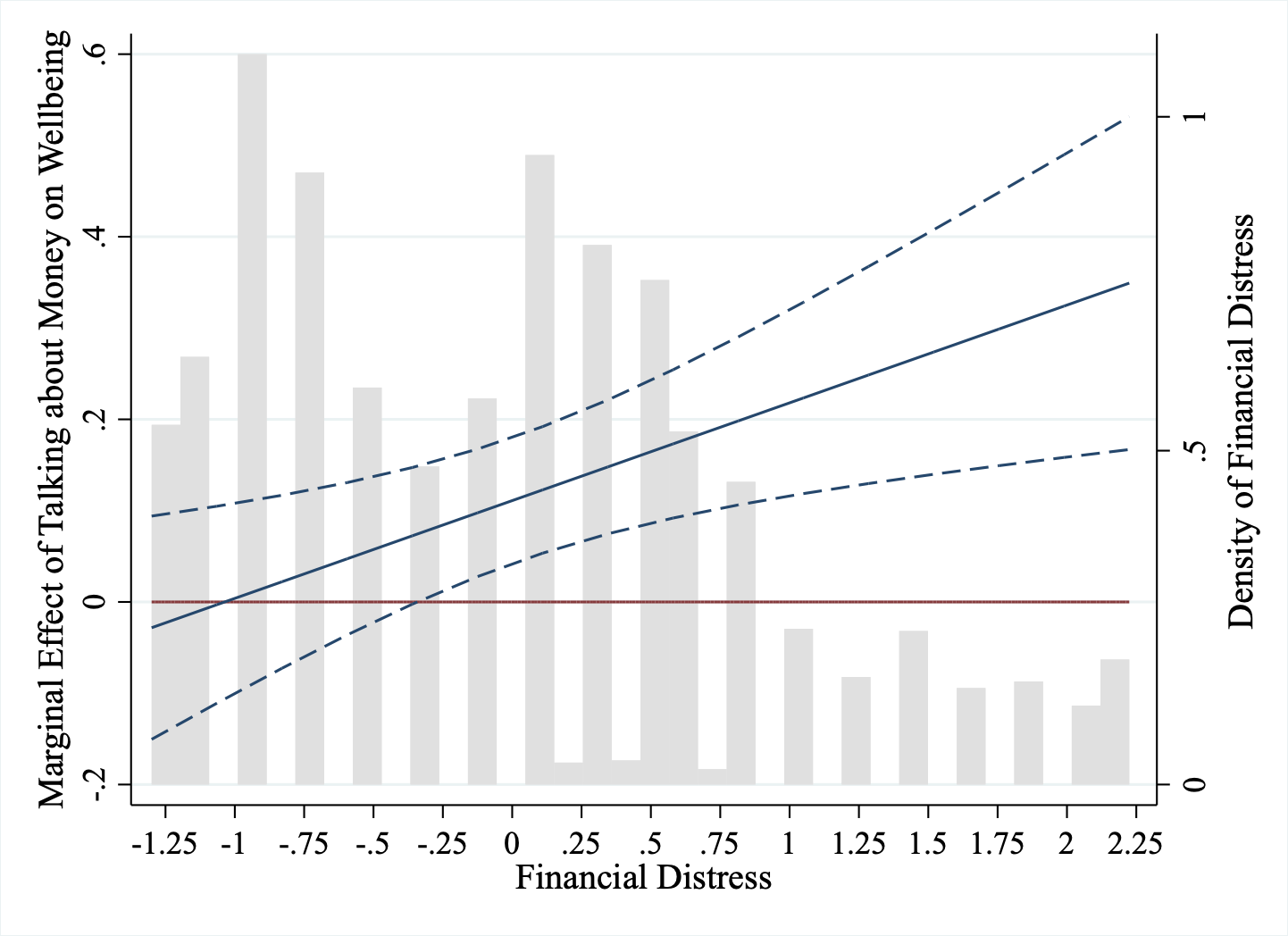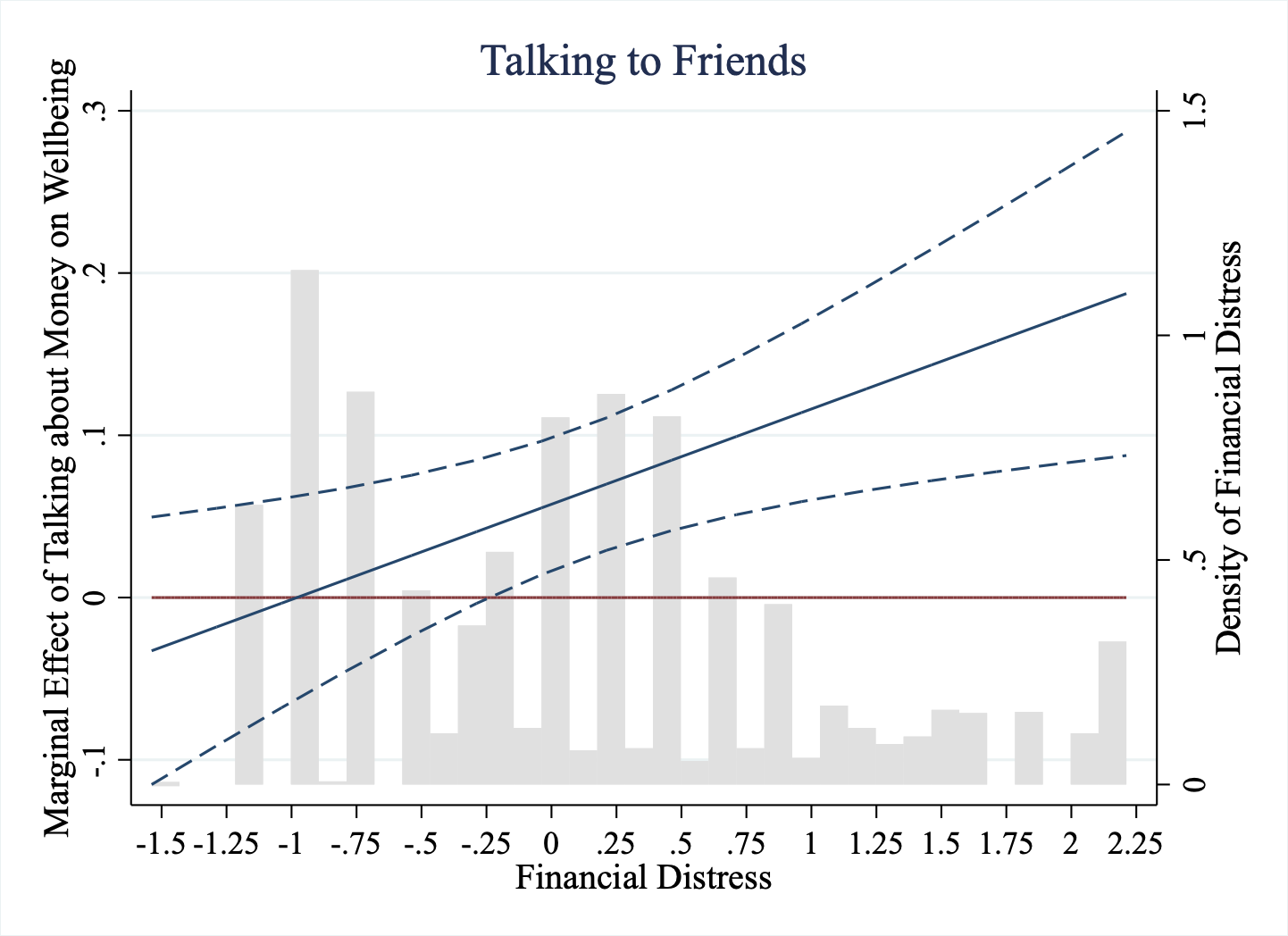Communication about money is a social, cultural and psychological taboo. But severe consequences can result when people refrain from discussing money. People need to talk about their finances in order to relieve stress and access advice. ‘A problem shared is a problem halved' is a proverbial saying expressing the idea that when experiencing difficulties, it is beneficial to talk to others about them. I test this hypothesis in the context of money problems. Using survey data from the UK provided by the FCA/Money Advice Service. I use two cross-sectional surveys, one from 2015 and one from 2018, to understand the relationship between financial distress, talking about money and subjective wellbeing.
2015 FCA Data
Wellbeing
Overall, how satisfied are you with your life nowadays?
[0 = Not at all satisfied, 10 = Completely satisfied]
Financial Distress
How satisfied are you with your overall financial circumstances?
[0 = Not at all satisfied, 10 = Completely satisfied]
To what extent do you feel that keeping up with your bills and credit commit
[1 = It is not a burden at all, 3 = It is a heavy burden]
Money Talk
Do you discuss your household finances openly with any of the following people?
1. Friends
2. My partner/spouse
3. Parents/Family
4. My children
5. My colleagues
6. Members of my local community
7. Other, please specify
8. I prefer not to talk about my finances with any of these people
We can plot the marginal effect of talking about money on swl across financial distress.
2018 FCA Data
Wellbeing
Overall, how satisfied are you with your life nowadays?
[0 = Not at all satisfied, 10 = Completely satisfied]
Financial Distress
How satisfied are you with your overall financial circumstances?
[0 = Not at all satisfied, 10 = Completely satisfied]
To what extent do you feel that keeping up with your bills and credit commit
[1 = It is not a burden at all, 3 = It is a heavy burden]
Money Talk
Talk openly about household finances with…partner/ spouse?
[1 = Strongly Disagree, 5 = Strongly Agree]
Talk openly about household finances with…other family members/ friend?
[1 = Strongly Disagree, 5 = Strongly Agree]
Conclusion
When people are not financially distressed (e.g. they have high financial wellbeing) talking about money doesn't have an impact on their overall wellbeing
However, when people are suffering financially, then talking about money makes a significant difference to their overall happiness.
Thus, after controlling for demographics and financial variables, our results are consistent with the idea that talking about money could improve the happiness of those suffering from financial diistress.





